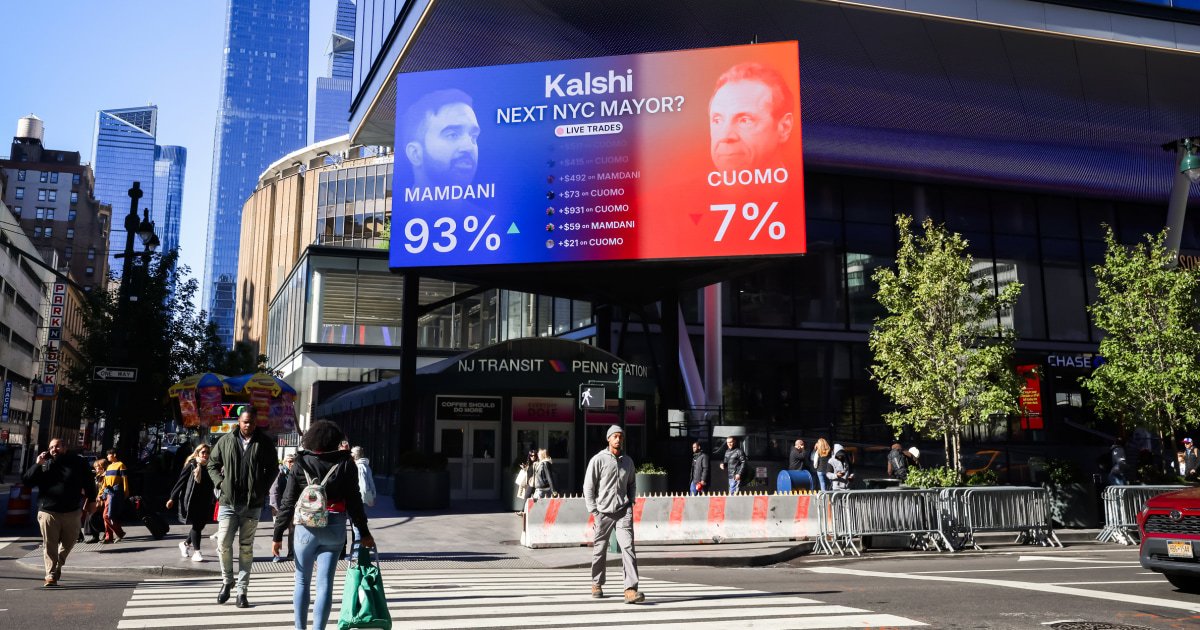Google Adds Prediction Market Odds to Google Finance
In a significant move that could reshape the landscape of financial analytics and event forecasting, Google has announced plans to integrate “prediction market” odds from online betting platforms Kalshi and Polymarket into its Google Finance tools. This initiative, revealed late Thursday, positions these platforms within reach of millions of Google users while they navigate financial inquiries and market analyses.
Expanding Access to Prediction Markets
The inclusion of prediction market odds aims to democratize access to vital financial insights. Users can now pose questions about future market events directly through Google’s search functionality. For instance, a simple query like “What will GDP growth be for 2025?” could yield current probabilities derived from market activities. This integration capitalizes on the concept of “wisdom of the crowds,” whereby collective predictions can serve as valuable indicators of future economic trends.
The Legal Landscape: A Gray Area
However, the arrival of Kalshi and Polymarket on Google Finance does not come without controversy. Both platforms advocate that their betting mechanisms are merely “event contracts” that do not fall under the same regulations as traditional gambling. They argue their operations should be governed like commodities rather than being subjected to state gambling laws.
Despite these assertions, skepticism remains, especially among federal lawmakers and several state attorneys general. Many contend that the way these platforms package their betting offerings resembles traditional sports betting more than they admit, intensifying the scrutiny they’ve faced.
User Experience: How Prediction Odds Work
While Google has not detailed how users will interact with these prediction odds—whether they will link directly to Kalshi and Polymarket websites—both platforms operate based on aggregate data from user bets. Such bets cover a broad array of topics, including financial results, electoral outcomes, and even entertainment award predictions. The sheer variety of events available for betting makes these platforms appealing as sources of insights.
Navigating Regulatory Challenges
Kalshi and Polymarket currently find themselves traversing a complex regulatory framework that varies by jurisdiction. In the U.S., Polymarket has had to enforce particular restrictions, with U.S.-based individuals limited to a “view-only” mode—an arrangement expected to change soon as Polymarket prepares to unveil stateside betting options. Meanwhile, residents in countries such as Australia and France face similarly strict betting limitations.
Kalshi, on the other hand, claims an advantage by being regulated in the U.S. by the Commodity Futures Trading Commission (CFTC). This regulatory framework allows Kalshi to assert its eligibility to operate across all 50 states, even those with explicit prohibitions against sports betting. Nonetheless, the legality and future of both companies hang in the balance, as state attorneys general pursue legal avenues questioning their operations.
Concerns Over Market Integrity
As both platforms continue to grow, they face heightened scrutiny not only from regulators but also from academics. Concerns have arisen regarding the integrity of prediction markets like Polymarket, with allegations of market manipulation surfacing. Reports suggest that some users may artificially inflate trading volumes by rapidly executing transactions among themselves, fundamentally undermining the credibility of the market.
Moreover, there are apprehensions surrounding the potential consequences of these prediction markets on public events, particularly elections. The Biden-era CFTC has articulated that manipulative conduct could distort electoral processes and influence misinformation dissemination.
Academic Insights: Trading Volume Concerns
In light of these issues, researchers from Columbia Business School recently released a paper indicating that as much as 25% of Polymarket’s trading volume might be misleadingly inflated. Such findings serve as a troubling reminder that the validity of these prediction markets remains under rigorous examination.
Closing Thoughts
As Google integrates these odds into its platform, users can expect to access a wealth of data that attempts to encapsulate a wide range of predictive analytics. While this development may enrich financial discussions and market speculations, the underlying regulatory challenges and ethical considerations will likely continue to evolve in tandem with public engagement in these innovative but contentious platforms.





